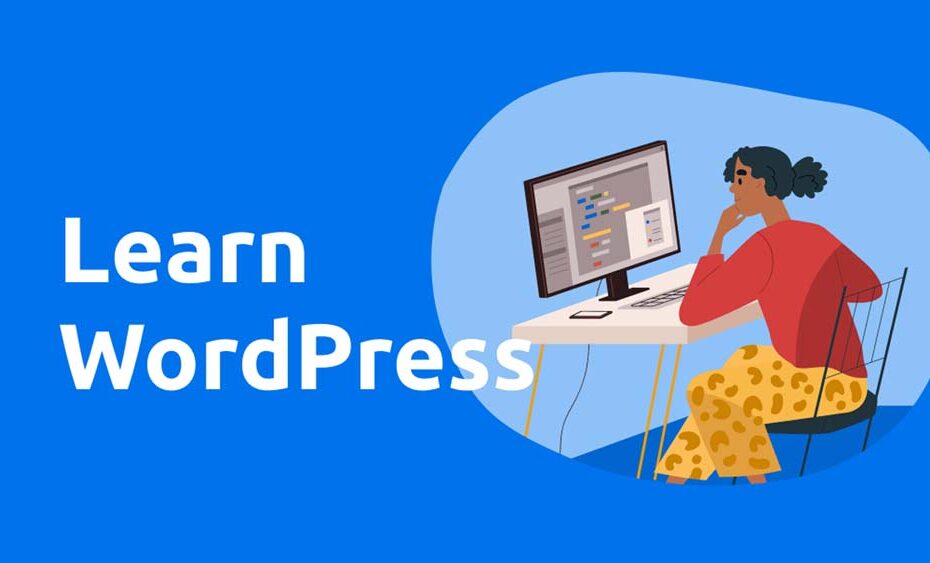Understanding how to learn WordPress and learning WordPress can open up a world of possibilities, whether you want to create a personal blog, build a professional website, or start an online business. WordPress is a powerful, user-friendly content management system (CMS) that powers over 40% of all websites on the internet. This blog post will guide you through the steps to learn WordPress effectively, highlighting key resources, tools, and tips to get you started on your WordPress journey.
Why & How To Learn WordPress?
WordPress offers a versatile platform for website creation and management, with a range of features that make it accessible to beginners and powerful enough for experienced developers. Here are some reasons why learning WordPress is beneficial:
- User-Friendly Interface: WordPress is designed to be easy to use, with a simple interface that makes website management straightforward.
- Customizable: With thousands of themes and plugins, WordPress allows for extensive customization to suit any type of website.
- SEO-Friendly: Built-in SEO features and plugins help optimize your site for search engines.
- Community Support: A large, active community provides abundant resources and support for learning and troubleshooting.
Steps to Learn WordPress
- Understand the BasicsBefore diving into WordPress, it’s essential to understand the basics of how websites work. Familiarize yourself with concepts like domains, hosting, HTML, and CSS. These foundational concepts will make learning WordPress easier.
- Set Up a WordPress Site
- Choose a Hosting Provider: Select a reliable hosting provider that offers one-click WordPress installation, such as Bluehost, SiteGround, or HostGator.
- Install WordPress: Follow the hosting provider’s instructions to install WordPress. This usually involves a simple one-click installation process.
- Select a Theme: Choose a theme from the WordPress theme repository or third-party marketplaces. Themes control the appearance and layout of your site.
- Install Essential Plugins: Plugins extend the functionality of your site. Start with essential plugins like Yoast SEO, Contact Form 7, and WooCommerce (if you plan to sell products).
- Learn Through Tutorials and Courses
- Official WordPress Documentation: The official WordPress Codex and support pages are comprehensive resources for learning WordPress.
- Online Courses: Websites like Udemy, Coursera, and LinkedIn Learning offer structured courses on WordPress, ranging from beginner to advanced levels.
- YouTube Channels: Channels like WPBeginner, WPCrafter, and Tyler Moore provide step-by-step video tutorials.
- Practice by Building Your Own SiteHands-on experience is crucial for learning WordPress. Start by creating a personal blog, portfolio, or a simple business website. Experiment with different themes, plugins, and customization options to get a feel for how everything works.
- Join the WordPress Community
- WordPress Forums: Participate in the official WordPress support forums to ask questions and learn from experienced users.
- Local Meetups and WordCamps: Attend WordPress meetups and WordCamps to network with other WordPress users, developers, and enthusiasts.
- Social Media Groups: Join Facebook groups, LinkedIn groups, and other social media communities focused on WordPress.
- Stay UpdatedWordPress is constantly evolving, with regular updates and new features. Follow WordPress blogs, subscribe to newsletters, and keep an eye on the latest news to stay informed about updates and best practices.
Essential Resources for Learning WordPress
- WordPress.org: The official WordPress website offers extensive documentation, support forums, and a theme/plugin repository.
- WPBeginner: A beginner-friendly website with tutorials, guides, and tips on all things WordPress.
- Smashing Magazine: Offers in-depth articles and tutorials on web design and development, including WordPress.
- CodeinWP: Provides tutorials, theme reviews, and plugin recommendations for WordPress users.
- WP101: Offers video tutorials designed to help beginners learn WordPress.
Conclusion
Learning WordPress is a valuable skill that can empower you to create and manage websites effectively. By following the steps outlined in this guide, leveraging online resources, and practicing regularly, you can become proficient in WordPress and harness its full potential. Whether you’re building a personal blog, a business site, or an online store, WordPress provides the tools and flexibility you need to succeed.
